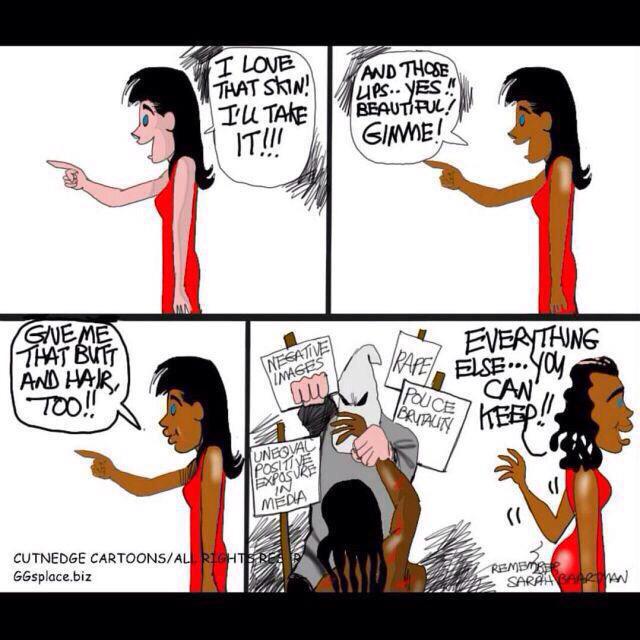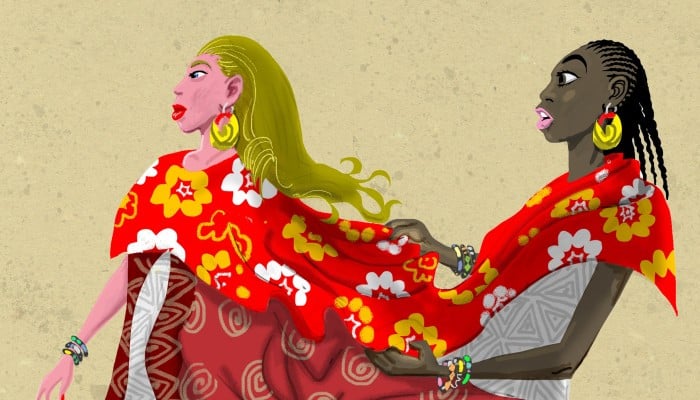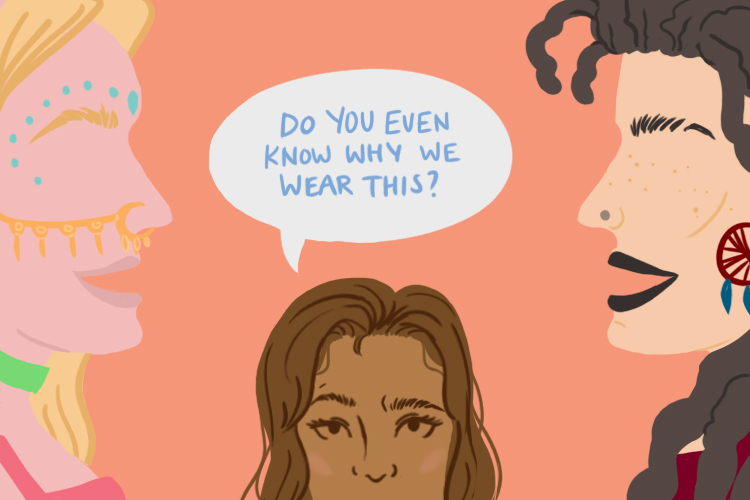The Erasure Of Black History: Why Cultural Appropriation In The Fashion Industry Is Actually Colonialism

The fashion industry has been known for its heavy participation in cultural appropriation whilst giving little to no voice and recognition to the important and valuable history many these “styles and trends” hold. Some see cultural appropriation as simply just appreciating culture but the problem that has been entrenched in societies all over the world is the erasure of black history and the silencing of black voices.
Cultural appropriation is in essence, taking someone else’s culture rebranding it and selling it as something more appealing to a larger audience to make a profit and create the illusion of innovation and creativity from a company that has no actual understanding of the history behind the style. The problem of erasure now comes due to this. Companies, brands and individuals make no effort to learn the history of black people, make no effort to educate themselves yet still feel entitled to steal and cherry-pick the parts that will benefit them. Due to this lack of research into the culture behind these styles, when explaining the idea or sharing the style the audience is misinformed and told the idea is new without any background knowledge on the history.
Now that fashion is seemingly taking a turn to create consciously and consumers are demanding to know where their clothes are made, the environmental factors and the ethics behind the brand, why aren’t we also demanding to understand where some of our favourite styles come from and give appreciation to the creatives communities that exist outside of the west?

Just a note, other people of colour experience cultural erasure from the west and their cultures are often appropriated, this too is problematic but for the sake of delving into the erasure of specifically black history and due to the current events this seems like an important aspect to go into so, I will be referred to only black culture.
Cultural appropriation is not a new concept that has emerged due to globalisation or high fashion trailing down to fast fashion, but something that has been going on for decades upon decades just with a different name, colonisation. Cultural appropriation seems to be one of those terms to softly explain something that in the past has caused great destruction and the ruining of communities and countries on a larger scale. The element of oppression we are missing in cultural appropriation is the power and economic disparity as well as the historic context. By now we all know there is a race wage gap as well as a shortage of black people in the fashion industry meaning less power and influence coming from black people. This means White brands are in a position to steal and benefit from other cultures without the effects due to their authority and in this world white voices are heard louder than black voices. Essentially, Colonial power has the ability to legally protect the creativity they have taken and feel entitled to.

If we look back at the history of colonisation we will see many similarities with cultural appropriation. The root of colonisation came from viewing something great and in order to not feel the guilt of stealing it and uphold the moral high ground as the “pure” and more civilized race, colonisers created the notion and inforced onto black individuals that white is superior that whatever is from the west is better and therefore the west deserves the best and automatically has ownership of all things great. This is why you find some of the most beautiful places in the world that are not in the west named after White kings and queens and explorers. For example, the victoria falls bordering Zambia and Zimbabwe was named after Queen Victoria whilst the original name was Mosi-oa-Tunya.meaning the smoke that thunders. The appreciation of this world wonder would have been to simply pay a visit, take a couple of pictures and keep it moving. Colonisation is the feeling of entitlement over everything that is beautiful and useful this includes the enslavement of black people and the theft of gold and other resources found in the motherland. In order to create this idea of white superiority colonisers intended to erase black culture to deny the achievements to cover up all the good that has come from the motherland and brainwash the whole world into believing black people have nothing to offer and everything that is good coming from black people is due to the white man’s discoveries and innovations. Wrong.

The main purpose of colonisation was to take full control in order to continue to freely steal resources that produce generational wealth while excluding the oppressed group from accessing this economic system and the resources that were initially there’s.
Cultural appropriation is not only offensive but it’s continuing the colonialist mindset as well as the erasure of black history which is already lacking in our education systems. We are teaching people that white is right and only white people could possibly be responsible for the beauty and creativity we see in fashion and other industries when the fact is, there is beauty and innovation across the world that ceases to be recognised due to cultural appropriation and the oppression of black people.

So now that you have a greater understanding of the history of cultural appropriation, what can brands and individuals do to turn their colonial mindset into an appreciation mindset?
- Get curious, look into things and start asking questions
2. When you find a creation from a different culture make sure to call it by its original name and refer back to the culture when asked about it.
3. Treat other peoples culture with respect the same you are taught to respect British culture is the same way you should respect other people cultures.
4. Make a conscious effort to learn and teach others about black history if you know there are elements of that culture you have benefited from.

